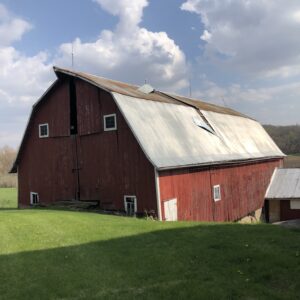
Read: 1 Kings 21
Naboth the Jezreelite had a vineyard in Jezreel, beside the palace of King Ahab of Samaria. And Ahab said to Naboth, “Give me your vineyard, so that I may have it for a vegetable garden, because it is near my house; I will give you a better vineyard for it; or, if it seems good to you, I will give you its value in money.” But Naboth said to Ahab, “The LORD forbid that I should give you my ancestral inheritance” (1 Kings 21:1-3, NRSV).
Ahab’s offer sounds reasonable enough. After all, kings have been known to take what they want without paying for it. Shouldn’t he get points for offering Naboth fair market value for his vineyard?
Judging by Naboth’s reaction, it’s not about the money. For Naboth, it’s about something infinitely more sacred: his ancestral inheritance. He refuses to trade or to sell—and he pays for that refusal with his life.
Would we defend our inheritance with our lives?
That’s not really a hypothetical question. The earth, after all, is our ancestral inheritance. And since selling out or trading up doesn’t seem to be an option, we had better take care of it. Our lives—and the lives of future generations—depend on it.
Last week I had the opportunity to return to my family’s farm in northwest Illinois. I took a picture of our old barn (see above). It’s on its last legs, but still beautiful in my eyes. In my memory it’s a place of warmth and safety—a place to lie back with a book while watching dust mites play in the sunbeams. It’s a place to watch calves and lambs tumbling into the world. It’s a place for befriending a family of field mice. It’s a place to sing songs with my siblings.
Everybody should have a place like that, but few people do.
Is my attachment sentimental? Yes. But even allowing for that, I would argue that this place has formed me in ways I can’t explain. It’s as if the place is imprinted on my soul—much as a mother’s face is imprinted on the psyche of her baby.
Is the earth such a mother—whether we are aware of it or not?
The pandemic has pushed us to think about a lot of things. High on the list, however, is how precious—and interconnected—our world is. It also pushes us to ask: What do we need to do differently to protect our ancestral inheritance?
Wendell Berry pushes us in similar directions. Here is part of a poem that he wrote long before the pandemic. It’s called, “A Poem About Hope and Place”:
Because we have not made our lives to fit
Our places, the forests are ruined, the fields eroded,
The streams polluted, the mountains overturned. Hope
Then to belong to your place by your own knowledge
Of what it is that no other place is, and by
Your caring for it as you care for no other place, this
Place that you belong to though it is not yours,
For it was from the beginning and will be to the end.*
We belong to places more than places belong to us. Berry knows it. Naboth knew it. But do we know it?
If you know it, what are you willing to do to “save your place”? How has it saved you?
Ponder this quote from another poem by Wendell Berry: “There are no unsacred spaces; there are only sacred places and desecrated places” (from “How to Be a Poet”).
Pray: Help us to make our lives fit our places, God of all creation.
*See the full text of the poem and hear Wendell Berry reading it by following this link.
